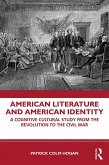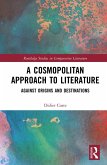In this book, Hogue re-configures the history of modern America and re-represents the modern American novel, allowing conceptual spaces of race, gender, sex, nature, the non-rational, the non-human, consumption, and class to be critiqued or to be displaced, eventually highlighting that modern American history and literature are not singular. They are much more complex, diverse, heterogeneous, and richer because modern American history is a series of economic, social, anti-colonial, feminist, and political and social movements, levels, and conditions, with a whole interplay of differences. The book explains how, historically and institutionally, in the 1920s and 1930s modern American society and modern American literature have been represented singularly and monoculturally, with modernity breaking with the past/nature/the non-human-animals, plants, the water, the landscape, the non-rational, and/or indifferent forces of nature such as hurricanes.
This book focuses, first, on the transformation of modern American history, literature, and culture, which had begun in the middle of the nineteenth century. The transformation created a new and different and unequal modern American society through a series of events-many of them happening sequentially and simultaneously, the United States in the early 20th century grew into an economic superpower. Second, the book examines the darker side of this unequal modern American society: the legal racial segregation of people of color and the deadly economic exploitation of the working class, women, people of color, colonized nations, incorporated territories and protectorates. Third, it focuses on how vulnerable and marginalized people of color, women, working-class European immigrants, colonized nations, incorporated territories, protectorates, and writers, who were denied justice, difference and equality, resisted, challenged, re-wrote, and transformed this modern America.
The reconfiguration of the history of modern America is explored using Althusser's concepts of the Repressive State apparatus and the Ideological State apparatuses, and postcolonial, feminist, psychoanalytical, deconstructive, cultural theories and Foucault/Deleuze's notion of history, showing how the US in the 1920s and 1930s emerged as a rational, mechanical society with a business civilization, where mass production, consumerism and advertising contributed to the construction of the social and the subject. The book explains how progressives, labor unions, workers, the NAACP and the Garvey movement, socialists, communists, bohemians, Asian and Native American resistance movements, the Anti-Imperialist League, and the various sectors of the women's movements-which co-existed and developed on parallel planes and which, at times, commingle in their becomings-challenged, contested, and, at times, transformed this economically, socially, and racially unequal, modern America.
This book focuses, first, on the transformation of modern American history, literature, and culture, which had begun in the middle of the nineteenth century. The transformation created a new and different and unequal modern American society through a series of events-many of them happening sequentially and simultaneously, the United States in the early 20th century grew into an economic superpower. Second, the book examines the darker side of this unequal modern American society: the legal racial segregation of people of color and the deadly economic exploitation of the working class, women, people of color, colonized nations, incorporated territories and protectorates. Third, it focuses on how vulnerable and marginalized people of color, women, working-class European immigrants, colonized nations, incorporated territories, protectorates, and writers, who were denied justice, difference and equality, resisted, challenged, re-wrote, and transformed this modern America.
The reconfiguration of the history of modern America is explored using Althusser's concepts of the Repressive State apparatus and the Ideological State apparatuses, and postcolonial, feminist, psychoanalytical, deconstructive, cultural theories and Foucault/Deleuze's notion of history, showing how the US in the 1920s and 1930s emerged as a rational, mechanical society with a business civilization, where mass production, consumerism and advertising contributed to the construction of the social and the subject. The book explains how progressives, labor unions, workers, the NAACP and the Garvey movement, socialists, communists, bohemians, Asian and Native American resistance movements, the Anti-Imperialist League, and the various sectors of the women's movements-which co-existed and developed on parallel planes and which, at times, commingle in their becomings-challenged, contested, and, at times, transformed this economically, socially, and racially unequal, modern America.
Dieser Download kann aus rechtlichen Gründen nur mit Rechnungsadresse in A, D ausgeliefert werden.









